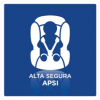The cariprazine treatment group showed statistically significant improvement in the primary outcome measure, the Positive and Negative Syndromes Scale Factor Score for Negative Symptoms (PANSS-NFS) compared to risperidone. The cariprazine treatment group also showed statistically significant improvement with regard to the secondary outcome measure, the Personal and Social Performance Scale (PSP) compared to risperidone. The patients tolerated the treatment well. Data will be further analyzed in the coming weeks.
“We are very pleased about these positive phase III results. The preliminary data clearly demonstrates that in addition to the already shown efficacy in patients with schizophrenia and acute mania associated with bipolar I disorder, cariprazine has also the potential to become a novel promising therapeutic option for the unmet medical need of patients suffering from predominant negative symptoms of schizophrenia,” said Dr István Greiner, Research Director of Gedeon Richter Plc.
“This is the first study to demonstrate clinically relevant efficacy in a group of patients who had been without a reliable treatment option. Based on the preliminary data of the study, cariprazine may offer a unique treatment to improve the patients’ and their relatives’ quality of life,” added Dr György Németh, Chief Medical Officer of Gedeon Richter Plc.
About this Phase IIIb Study
This was a 26-week long, multinational, multicenter, randomized, double-blind, risperidonecontrolled, parallel-group, fixed/flexible dose Phase IIIb clinical trial to evaluate the efficacy, safety, and tolerability of cariprazine as monotherapy in adult patients suffering from schizophrenia with persistent and predominant negative symptoms. The patients’ positive symptoms were stabilized at a low level and they did not have depressive symptoms. Patients were diagnosed with schizophrenia, according to the Diagnostic and Statistical Manual of Mental Disorders, Fourth Edition, Text Revision (DSM-IV-TR) criteria, had a minimum score of 24 on the PANSS-NFS, a maximum score of 19 points on the PANSS Factor Score for Positive Symptoms (PANSS-PFS), and no more than 6 points on the Calgary Depression Scale for Schizophrenia (CDSS).
Following a prospective lead-in period of 4 weeks, a total of 461 patients between 18 and 65 years of age were randomized to either cariprazine (N=230), or risperidone (N=231).
Treatment was administered once daily for 26 weeks, followed by a 2-week safety follow-up period. The target doses for cariprazine and risperidone were 4.5 mg/day and 4.0 mg/day, respectively. A total of 77.4% of the patients in each of the treatment groups completed the 26 week treatment period. The primary endpoint was defined as change from baseline in the PANSS-NFS at week 26, using a mixed-effects model for repeated measures (MMRM) analysis. The cariprazine treatment group showed statistically significant improvement in the PANSS-NFS relative to risperidone at week 26 (-1.47; p=0.002).
The key secondary endpoint was change from baseline in PSP score at week 26, using an MMRM analysis. Cariprazine 4.5 mg/day also showed statistically significant improvement in the PSP score versus risperidone (+4.61; p<0.001).
No treatment emergent adverse event was reported in more than 10% of the patients. The most frequent adverse events (incidence ≥5%) across both treatments groups were insomnia, headache, akathisia, worsening of schizophrenia symptoms, anxiety and somnolence.
About Cariprazine
Cariprazine, a dopamine D3 and D2 receptor partial agonist with preferential D3 receptor binding, is an atypical antipsychotic in late-stage development for the treatment of patients with schizophrenia and for patients with manic or mixed episodes associated with bipolar I disorder. The safety and efficacy of cariprazine has been studied in a clinical trial program of more than 2,700 patients in these indications. In addition, cariprazine is being investigated for the treatment of bipolar depression and as adjunctive treatment for major depressive disorder in adults.
Cariprazine is novel compound discovered by Richter’s researchers. Under the terms of collaboration agreements signed ten years ago, cariprazine has been co-developed with Forest Laboratories (now Actavis) for the territories of USA and Canada, and also with Mitsubishi Pharma (now Mitsubishi Tanabe Pharma) for Japan and other Asian countries.
About Schizophrenia
Schizophrenia is a chronic and disabling disorder that affects more than 21 million people worldwide. It imposes significant burden on patients, their families, and society. Symptoms fall into three broad categories: positive symptoms (hallucinations, delusions, thought disorders, and movement disorders), negative symptoms (such as loss of motivation and social withdrawal), and cognitive symptoms (problems with executive functioning, focusing, and working memory).
Based on available scientific data, the number of patients with predominant negative symptoms is estimated to be around 15-35% of those who are suffering from schizophrenia. Predominant negative symptoms can severely affect the patient’s ability for self care and independent life; everyday activities (e.g. working or studying); and personal and social relationships.
About Gedeon Richter
Gedeon Richter (www.richter.hu), headquartered in Budapest/Hungary, is a major pharmaceutical company in Central Eastern Europe, with an expanding direct presence in Western Europe. Richter's consolidated sales were approximately EUR1.2 billion (US$1.6 billion) while its market capitalization amounted to EUR2.8 billion (US$3.8 billion) in 2013. The product portfolio of Richter covers almost all important therapeutic areas, including gynecology, central nervous system, and cardiovascular areas. Having the largest R&D unit in Central Eastern Europe, Richter's original research activity focuses on CNS disorders. With its widely acknowledged steroid chemistry expertise, Richter is a significant player in the female healthcare field worldwide. Richter is also active in biosimilar product development.



















